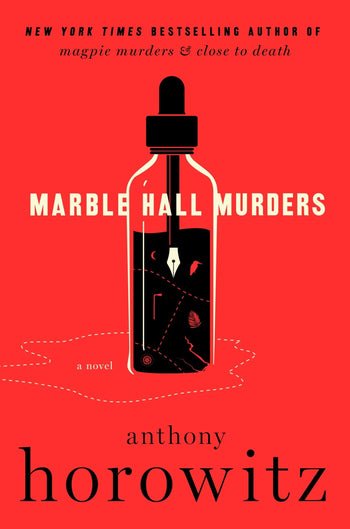
07 Jun Book Review of Marble Hall Murders (Susan Ryeland, #3)
Engaging with Mystery: A Review of Marble Hall Murders by Anthony Horowitz
From the moment I crack open a new Anthony Horowitz novel, I feel a rush of excitement mingled with nostalgia. Having loved the previous installments in the Susan Ryeland series, I was thrilled to dive into Marble Hall Murders, the latest puzzle presented by this master of deception. It’s a delightful experience, akin to attending a well-rehearsed play with unexpected twists, and Horowitz certainly delivers on that front.
In Marble Hall Murders, we are once again enveloped in the world of Susan Ryeland, who’s had her fair share of brushes with death while editing mystery novels featuring the charming detective Atticus Pünd. This time, she’s drawn into a layered narrative that oscillates between the present — where she’s editing a continuation novel by Eliot Crace — and a gripping murder mystery set in the 1950s. The central question posed early in the story truly hooks the reader: "Why murder a woman who is already dying?" It sets off a chain of thought that reverberates through the pages, mimicking the real-life complexities Horowitz weaves so seamlessly into his plots.
The elegance of Horowitz’s writing shines through the intricacy of his narrative. I appreciated the way he crafted dual timelines, each with its cache of characters that felt both real and richly drawn. Susan’s sharpness can be grating at times, and she often leaps into trouble without caution, which adds an element of relatability. We all have those moments where our impulses get the better of us, and it’s comforting to know that even in a world of crime and deception, our flaws remain universal.
I found myself intrigued by Eliot Crace’s insistence that he has embedded the identity of his grandmother’s killer within his book. The interplay between fiction and reality becomes dangerously delightful as Susan digs deeper, only to discover that she herself might become a target. With a character like DI Blakeney, who draws comparisons to classic Edwardian heroes—a reluctant participant entangled in chaos—there’s a sense of humor that balances the otherwise tense atmosphere.
One standout moment for me was when Pünd remarks, “Because it does not matter.” It’s a reminder of the futility that can underlie even the most desperate of human actions, evoking a profound sense of contemplation about our motivations. The red herrings are plenty, and as I navigated the depths of this web of intrigue, I appreciated that Horowitz challenges his readers to remain alert. It’s a classic "whodunit" experience where each clue can turn unexpected, leading to several satisfying conclusions.
Ultimately, Marble Hall Murders is a delicious combination of literary homage and mystery thriller that will please fans of crime fiction, especially those with a penchant for Agatha Christie. If you enjoy narratives that layer time periods and invite you to puzzle alongside the characters, look no further. This book resonates with its clever commentary on human nature and leaves readers questioning the boundaries between life, death, and the stories we create.
As I closed the final pages, I couldn’t help but feel a connection to Susan—flawed, passionate, and unyielding. If you’re a lover of richly woven mysteries or simply seeking a captivating story to indulge in, I wholeheartedly recommend adding Marble Hall Murders to your TBR pile. It will not only challenge your intellect but also entertain you in classic Horowitz style.
⭐⭐⭐⭐.3
MarbleHallMurders #NetGalley
Discover more about Marble Hall Murders (Susan Ryeland, #3) on GoodReads >>









